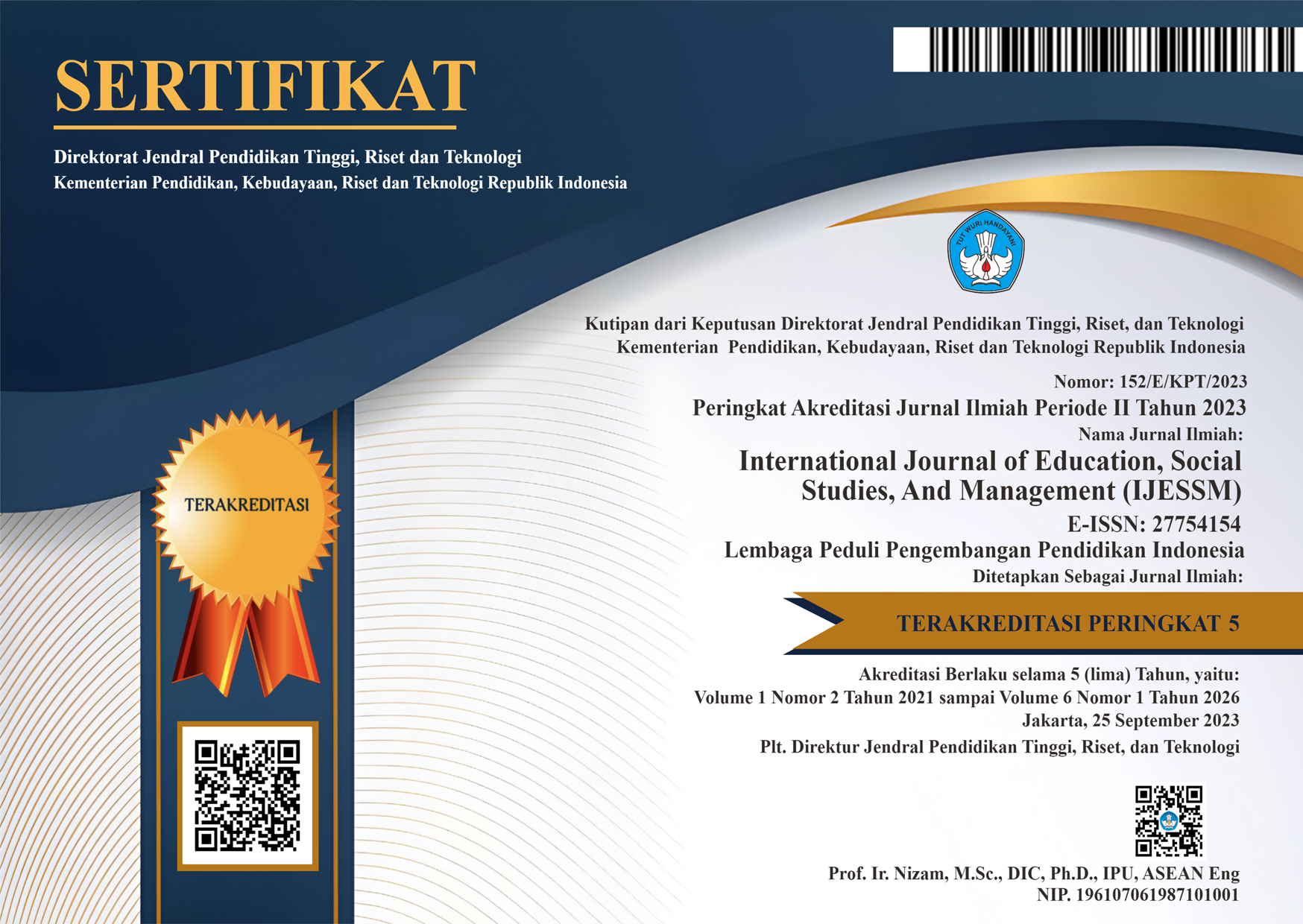Factors Influencing the Implementation of Accounting Digitalization in MSMEs: a Literature Review
DOI:
https://doi.org/10.52121/ijessm.v3i3.186Keywords:
e-accounting, Digitalization, MSME, Literature ReviewAbstract
This study aims to explore the implementation of e-accounting practices in Indonesia's Micro, Small, and Medium Enterprises (UMKM). With UMKM playing a pivotal role in the nation's economy, contributing significantly to employment and GDP, the research emphasizes the hurdles hindering the full adoption of digital accounting tools, such as limited financial support, innovation, and digital literacy, particularly in rural areas. Leveraging a literature review from SINTA and SCOPUS databases over the last decade, the study explores factors influencing e-accounting practices in UMKM. Key findings highlight the critical role of technical skills in advancing digital accounting practices, underscoring the need for proficiency in software understanding, data security, and analytical capabilities. Additionally, the study addresses barriers to digital technology adoption in accounting, including resistance to change and organizational culture, while emphasizing the transformative benefits of digitalization. Practically, the research aims to contribute by shedding light on factors influencing e-accounting in UMKM and advocating for infrastructure support and enhanced digital skills. Overcoming these challenges is deemed crucial for unlocking the full potential of accounting digitalization in UMKM and facilitating their improved financial practices and access to funding.
Downloads
Published
How to Cite
Issue
Section
License
Copyright (c) 2023 International Journal Of Education, Social Studies, And Management (IJESSM)

This work is licensed under a Creative Commons Attribution 4.0 International License.

















